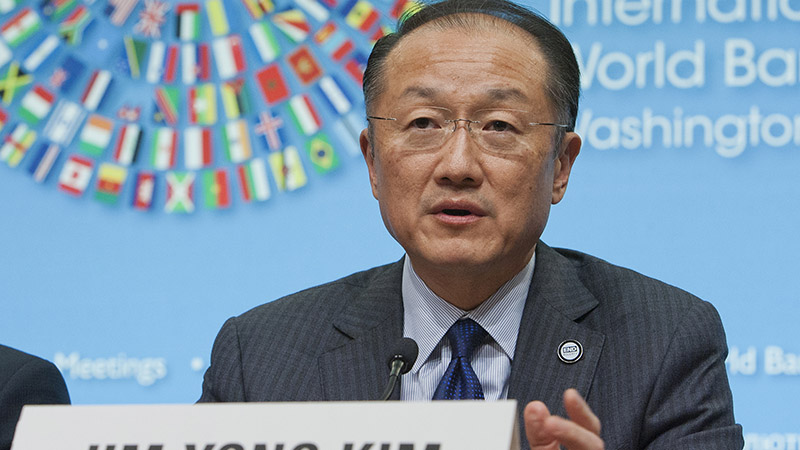The planet is in a race against time to stop construction of new coal-fired power plants across the globe, Word Bank head Jim Kim told media on Thursday.
Despite 195 countries approving a new global deal to combat climate change last December, plans to build hundreds of carbon-intensive energy plants were still live, he warned.
“We are working with countries to make renewables cheaper than coal and push forward efforts to mitigate the effects of climate change,” said Jim.
Rising temperatures, mass migration and the potential of a global pandemic were the current major threats to the global economy, he added at a press conference to mark the start of the Bank’s 2016 spring meeting.
Last week the world’s top lender to developing countries announced it would spend 28% of investments on climate-related projects by 2020.
Jim’s comments came on the same day pressure groups accused the World Bank of giving over $2 billion to oil, gas and coal projects.
“The Asian Development Bank has had a ban on financing fossil fuel exploration projects for years,” said Alex Doukas from the Oil Change International NGO.
“There’s no reason the World Bank couldn’t adopt a similar policy as a first step toward phasing out all finance for polluting fossil fuel projects.”
A bank spokesperson said it had not funded any greenfield coal projects for the past five years. Officials are believed to be discussing a complete ban on new coal investments.
Comment: World Bank cash for fossil fuels is worst kind of hypocrisy
While coal use in Europe and the US is steadily falling, countries in Africa and Asia are among those with plans to build an estimated 1,500 power stations.
Leaders in Poland, Australia, South Korea and Japan are among those who have suggested new coal plants are consistent with wider efforts to develop tougher climate regulations.
But a new study by WFF and Dutch analytical firm Ecofys warns that development of even the most efficient coal plants will blow the chances of limiting global warming to below the 2C danger zone.
“It is clear that in a post-Paris world, there is quite simply no role for coal, however ‘efficient’,” said WWF economist Sebastien Godinot.
